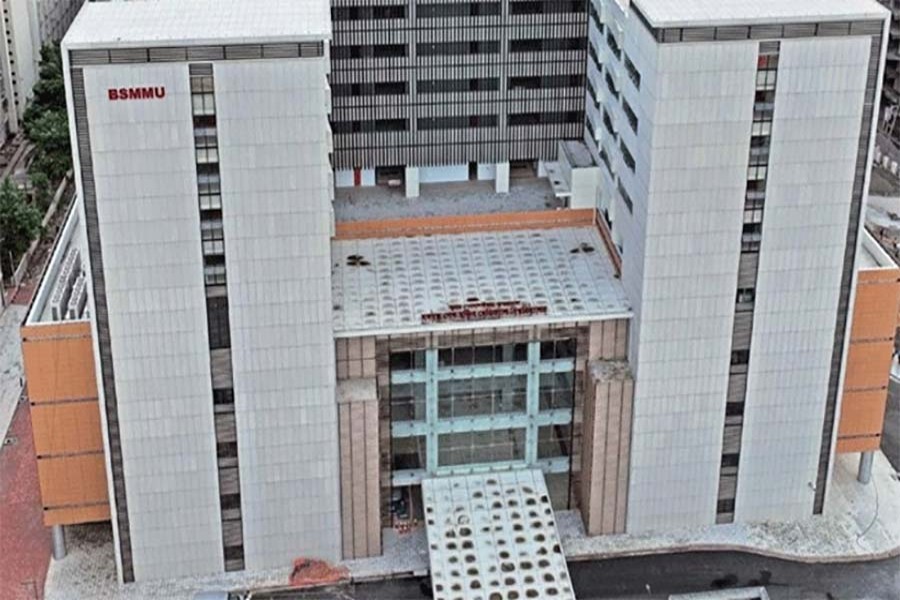
Published :
Updated :

Few of the country's medical treatment seekers have much expectation from the existing public hospitals. It stems from the huge rush of patients, and the resultant messy situation and the heavy load of duty on doctors and nurses. Yet finding no other options, patients keep thronging the hospitals drawn by the reputation they once used to enjoy. Most of the patients belong to the lower, lower-middle and middle classes. Patients of the affluent class normally take treatment at private hospitals. When it comes to complicated surgery, the relatively richer segments opt for hospitals in Singapore, Bangkok or in southern India. Yet patients do come from all parts of the country to take treatment and undergo surgery at Dhaka-based famed public hospitals.
Against this backdrop of medical treatment, the inauguration of the Super-specialised Hospital at the Bangabandhu Sheikh Mujib Medical University (BSMMU) at Shahbagh by Prime Minister Sheikh Hasina on Sept 14 marks a notable shift in the country's hospital service. The first of its kind in Bangladesh, the super-specialised hospital is set to become an alternative for Bangladeshis thinking of going abroad for medical reasons. The multi-faceted treatments and facilities at the super-specialised hospital would help Bangladesh save annually a sum of Tk 3.50 billion, a local news agency quoted the premier as saying.
As could be expected from the multi-modal hospital, medical attention of the most advanced kinds and the related services like prognoses, further tests and referrals etc will be coordinated from a single venue much to the satisfaction of patients and their near and dear ones. Many people have money. They have the ability to receive expensive treatments at reputable hospitals abroad. But people with limited income go to public hospitals, where they can get treatment at nominal charges. The just-inaugurated super-specialised hospital can be expected to meet this preliminary need of the average people apart from providing specialised treatment at the high end. A patient at the 750-bed hospital is expected to receive comprehensive treatments at its five centres having numerous departments. Besides, around 5,000 to 8,000 patients are set to receive outdoor service at the hospital. The basic strength of the super-specialised hospital lies in its 100-bed well equipped ICU, with 25 beds reserved for surgical patients, and 25 others for cardiac patients. The 14 operation theatres also give a hint of the hospital's capacity.
The just-inaugurated BSMMU super-specialised hospital is expected to emphasise medical research. It is imperative that a full-scale and vibrant hospital does not have any dearth of research activities. Insufficient research works by specialised doctors lead to below par functions of a hospital. The super-specialised hospital authorities should not allow it to happen. At the same time, gathering hands-on experience is a sine qua non for younger doctors. There is only one way to achieve it: remaining in rural health centres for longer periods and serving patients. The urge for acquiring the latest medical knowledge and information prepares talented young doctors to face any emergency. These potentially diligent doctors will surely add to the goodwill of an institution like the BSMMU Super-specialised Hospital.


 For all latest news, follow The Financial Express Google News channel.
For all latest news, follow The Financial Express Google News channel.